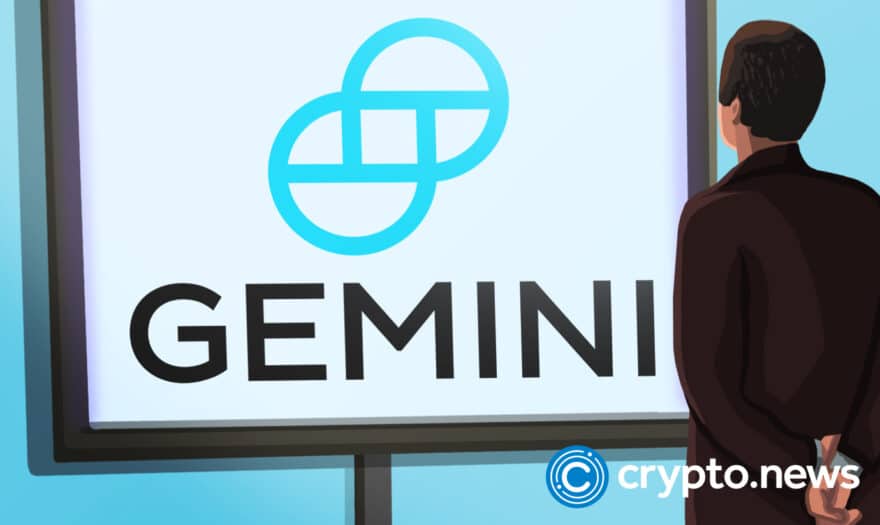Gemini: Barry Silbert’s DCG continues to ‘gaslight creditors’

Gemini, the crypto exchange founded by brothers Tyler and Cameron Winklevoss, continues to accuse Barry Silbert’s Digital Currency Group (DCG) of fraud.
According to the court filing, filed on Sept. 15, Gemini claims that DCG is trying to avoid accountability for the damage inflicted on the victims of its Earn product.
“DCG continues its campaign of contrived, misleading, and inaccurate assertions in an attempt to gaslight creditors of the Genesis estate generally, and the Gemini Lenders specifically, and escape responsibility for the harm it has caused them,” Gemini’s legal advisors, New York-based Hughes Hubbard & Reed LLP, stated.
This legal action by Gemini is a direct response to a recent statement issued by DCG concerning a proposed agreement involving the latter, the debtors, and the Official Committee of Unsecured Creditors.
Gemini’s allegations center on DCG’s creation of a $1.1 billion promissory note, which Gemini claims was an attempt to obscure substantial financial losses stemming from the collapse of Three Arrows Capital (3AC). The allegations raise concerns about transparency and financial integrity in the cryptocurrency space, especially as regulatory scrutiny in the industry continues to intensify.
Gemini contends that DCG intentionally kept the true terms of the promissory note hidden, resulting in misleading information being conveyed to Gemini’s creditors.
Additionally, Gemini asserts that DCG borrowed a significant quantity of Bitcoin (BTC) from Gemini instead of delivering the expected capital. These allegations deepen the legal dispute and cast a shadow over the actions of a major player in the cryptocurrency arena.
Adding to the legal confrontation, Gemini emphasizes that DCG has yet to fulfill its obligation to repay over $630 million borrowed from its company, with the repayment deadline already due months ago.
DCG responds to Gemini
In response to these allegations, DCG has put forward a proposal that involves Genesis creditors, including Gemini, extending credit to DCG over several years. However, Gemini has made it clear that it will contest this proposal, firmly advocating that DCG should fulfill its obligations by providing creditors with a fair and just amount.
Gemini has also accused DCG of employing a strategy over the past ten months to wear down creditors to persuade them to accept a reduced settlement amount. Despite these tactics, Gemini remains resolute and is determined to pursue an equitable resolution rather than yield to these pressures.
According to the lawsuit, Gemini is demanding substantial improvements in the terms of the loans extended by DCG if it intends to gain the support of the aggrieved parties. Furthermore, Gemini is also accusing DCG of bearing responsibility for the insolvency of its subsidiary and sacrificing both the exchange and its creditors to shield itself from liability.
It’s important to note that Gemini’s court filing comes after months of negotiations with DCG and follows the collapse of the Gemini Earn program. The program’s demise triggered legal disputes and severed ties between Digital Currency Group and the cryptocurrency exchange.
Crypto exchanges face regulatory scrutiny
In Jan. 2023, the U.S. Securities and Exchange Commission (SEC) charged Genesis Global Capital LLC and Gemini Trust Company LLC for the unregistered offer and sale of securities to retail investors through the Gemini Earn crypto asset lending program, which later left investors in limbo.
The SEC alleges that Genesis and Gemini had offered unregistered securities to the public, bypassing disclosure requirements designed to protect investors.
Through this unregistered offering, Genesis and Gemini had raised billions of dollars worth of crypto assets from hundreds of thousands of investors promising high deposit yields.
However, Genesis later froze withdrawals, leaving Earn customers in a state of uncertainty.
In June 2023, the SEC also charged Coinbase for operating its crypto asset trading platform as an unregistered national securities exchange, broker, and clearing agency, as well as for failing to register the offer and sale of its crypto asset staking-as-a-service program.
Other centralized crypto trading venues, including Changpeng Zhao’s Binance and Kraken, have incurred the wrath of the Gary Gensler-led watchdog in recent months.

















